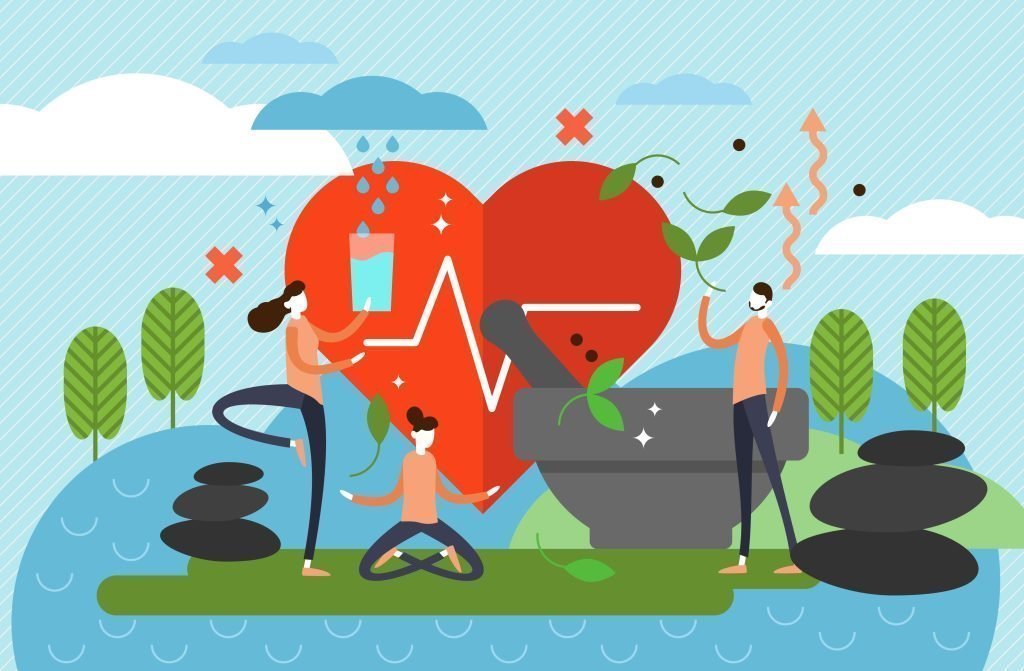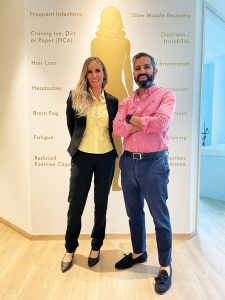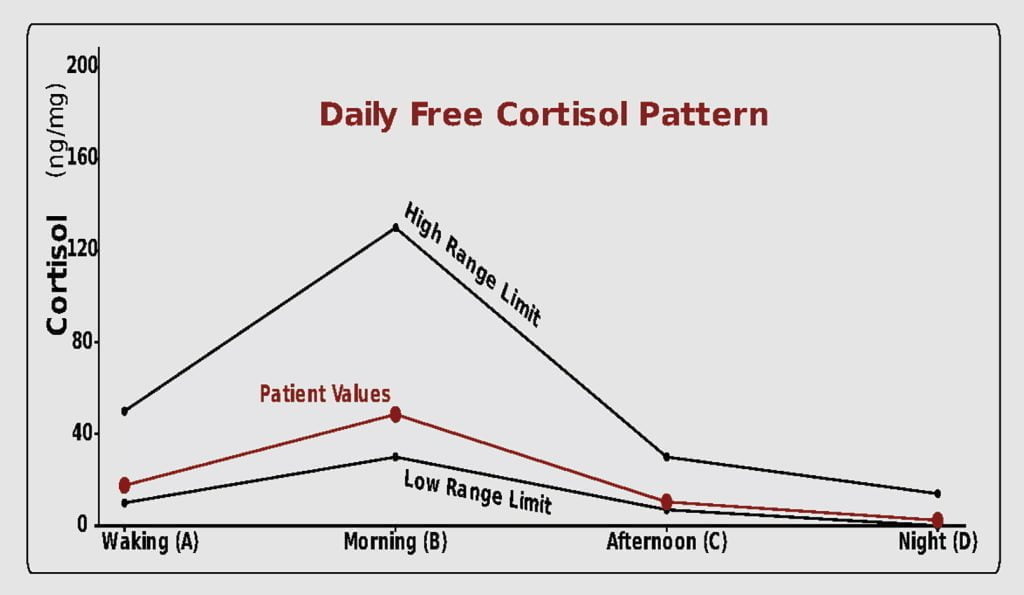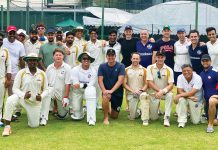 We know how privileged we are to have access to healthcare, and we’re well aware that Singapore offers some of the best medical facilities in the world. When we have an ache, pain or spooky symptom, most of us head to our doc for conventional help, leave with a prescription or follow-up appointment, and wait to feel human again.
We know how privileged we are to have access to healthcare, and we’re well aware that Singapore offers some of the best medical facilities in the world. When we have an ache, pain or spooky symptom, most of us head to our doc for conventional help, leave with a prescription or follow-up appointment, and wait to feel human again.
Yet as much as we love our GPs, when it comes to optimum health, there’s a variety of less mainstream and more natural options available to support wellbeing. In Asia, a more holistic approach to wellness, where the physical, mental, emotional, social and spiritual side of symptoms is addressed has been prevalent for centuries with disciplines such as Traditional Chinese Medicine (TCM), acupuncture, Ayurvedic treatments and shiatsu massage.
While a lack of official science backs up the effectiveness of many alternative therapies, there’s no denying that they’re gaining popularity. According to Health Times Australia (healthtimes.com.au), at least two out of every three Australians use some form of complementary medicine, while a survey found usage rates as high as 87 per cent among some patient groups, such as women with breast cancer.
But how do these holistic approaches work and where to start? As most of them exist outside of Singapore’s medical health care system, ANZA consults with a naturopathic and homoeopathic doctor as a bid to discover just what the deal is.
Naturopathy V Homeopathy
- Naturopathic medicine is based on the theory that ailments can be successfully treated or prevented without the use of drugs. It aims to heal the root causes of an illness, not just the symptoms. Naturopathic therapies provided are wider than those related to homoeopathy and can include herbs, massage, acupuncture, exercise, and nutritional counselling
- Homoeopathy is based on the belief that the body can cure itself and views symptoms of illness as ‘normal responses’ as the body attempts to regain health. Tiny amounts of natural substances like plants and minerals are believed to stimulate the healing process. Unlike naturopaths, homoeopaths can only provide homoeopathic remedies to patients
Holistic Help: Naturopathy
 Jo Upcraft visited The Integrative Medical Centre, a unique medical practice with a holistic approach to treatment. She consulted with General Practitioner Dr Dheeraj Khiatani and Dr Sabine Schellerer, a pharmacist and naturopath.
Jo Upcraft visited The Integrative Medical Centre, a unique medical practice with a holistic approach to treatment. She consulted with General Practitioner Dr Dheeraj Khiatani and Dr Sabine Schellerer, a pharmacist and naturopath.
SYMTOMS: Lately I’ve been feeling super-tired with increased anxiety and body aches. If I was a phone, I’d be running on 20% battery. I’m putting symptoms down to a potential iron deficiency, but at 47, could it be perimenopause?
CONSULTATION: The Integrative Medical Centre brings together practitioners from all areas of the health industry to collaborate on treating a patient’s mind, body and soul as one. It’s rare to find this kind of collective set-up in Singapore, so I feel really lucky to not only see a GP, but also a naturopath.
Through my separate consultations I learn that there are certain avenues a GP would go down to form a diagnosis which a naturopath wouldn’t do, and vice versa. (For example, saliva tests on hormones would not be commonly used in conventional medicine). GP Dr Dheeraj carried out a blood test (something naturopaths in Singapore are not permitted to do), and naturopathic doctor, Dr Sabine offered a more unusual source of diagnosis: The Dutch Test (Dried Urine Test for Comprehensive Hormones).
Consisting of filter paper collection strips, this is an advanced hormone test offering an extensive profile of sex and adrenal hormones to identify imbalances. (A male version is also available). My job was to take urine samples over 24 hours at a specific point in my menstrual cycle (or anytime if you’re post-menopause), then wait for my results to return from the lab in the UK.

“Prolonged exposure to stress can drain cortisol meaning that you’re running on empty”
DIAGNOSIS: Remarkably, my blood test returned with no signs of issues which could be linked to my symptoms such as an iron or Vitamin D deficiency, thyroid problem or melatonin dysregulation. However, The Dutch Test presented something that could otherwise only be established with multiple blood tests per day: the severe drop in my cortisol levels over 24 hours. “Cortisol is the body’s stress hormone which is released by the adrenal glands,” explains Dr Sabine. “Prolonged exposure to stress can drain cortisol and the adrenal glands which leaves you ‘running on empty’.” Symptoms include a lack of focus, low energy, a depressive mood, nervousness and digestive problems, amongst other symptoms (tick, tick and tick!). If I want to avoid a total burn out I need to take action. On the plus side, the results show I’m nowhere near menopause – yay!
TREATMENT: There are very limited conventional medical treatments for adrenal exhaustion and reducing it is multi-layered, but naturopathy can help. Dr Sabine suggests adaptogenic herbs in supplement form such as rhodiola, liquorice tea, Ashwagandha and B Vitamins, all of which aim to lift energy levels and encourage sleep and brain function. She also shocks me with the reality that overcoming adrenal fatigue can be a lengthy process – up to nine months. As naturopathy doesn’t offer ‘quick fixes’ and requires a strong commitment to supplements and herbal support, I’d better get started!
Dr Sabine’s lifestyle hacks for tired adrenals
- Avoid strenuous exercise
Hard HIT sessions or intense spin classes will be counterproductive to someone with adrenal fatigue. Choose low-impact exercises such as swimming, walking and yoga to move your body without causing extra stress. - Hydrate
Drink plenty of water throughout the day and fill up on food rich in Vitamin C such as Brussels sprouts, kale, fennel, broccoli, peppers, citrus fruits. - Build rest into your day
You don’t necessarily need to nap, but take timeouts alone to practice deep breathing and restoration. - Change your mind
Many of us hold unrealistic expectations about what we ‘should’ be achieving. The idea that being constantly stressed is a badge of honour only adds pressure. Find value in a balanced life instead. - Get to bed
Getting to bed before 11pm is a must. Many people get a second cortisol surge after this time which can further disrupt sleep patterns.
The Integrative Medical Centre, 491B River Valley Rd, #11-02, 248373.
theintegrativemedicalcentre.com
If you think you have a health condition, do not visit a holistic practitioner instead of seeing your GP. Always see your GP first.
Australia research: healthtimes.com.au/hub/natural-medicine/72/guidance/kk1/the-rise-of-natural-medicine-and-therapies/2148








